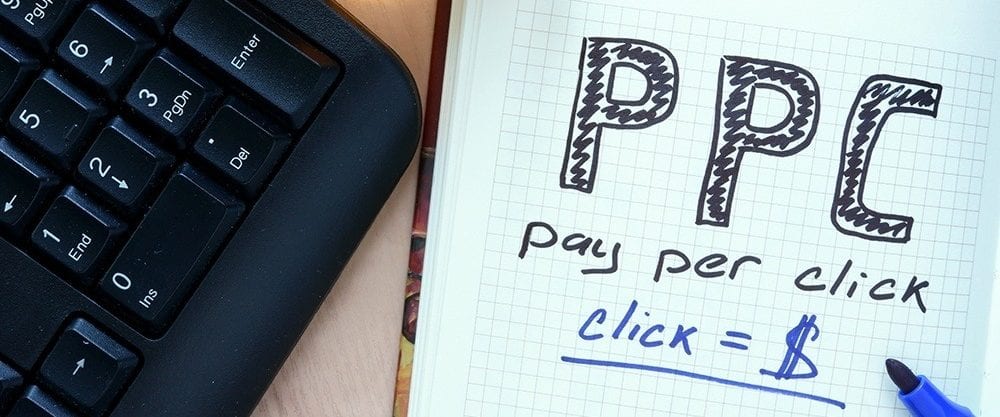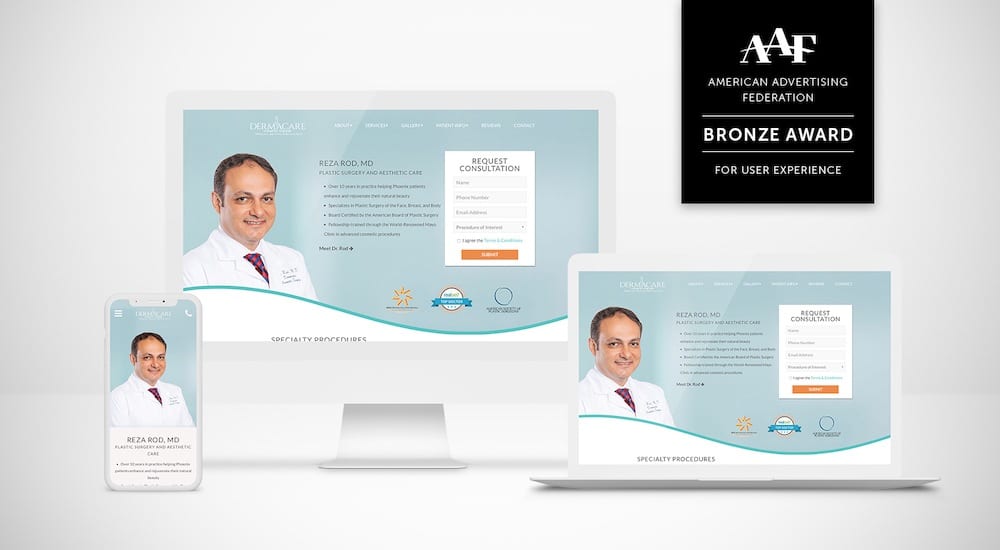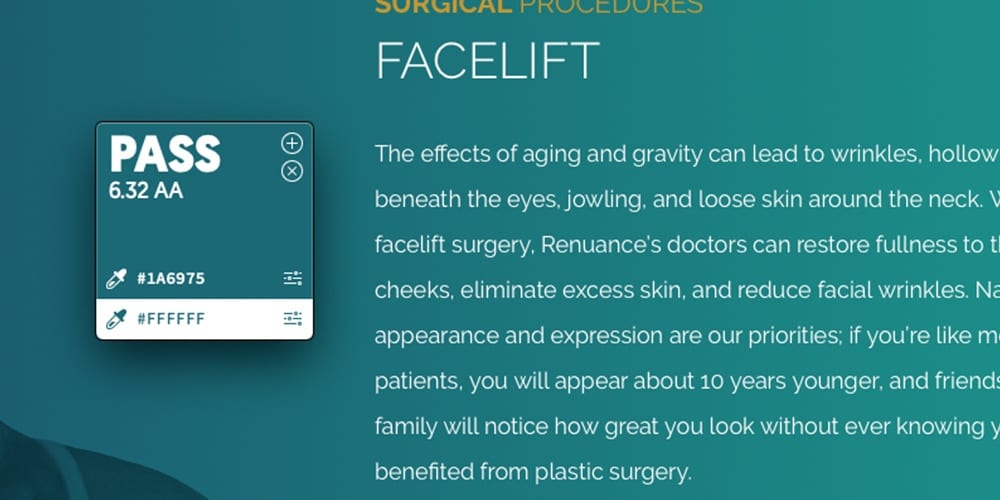Firm Media is seeing dependence of online resources exponentially growing with healthcare consumers. This means that competition in the healthcare market will only continue to intensify. It is crucial for healthcare businesses to adapt to the new trends of the digital marketing industry in order to succeed and thrive in this growing market. Hanapin Marketing, a leading digital marketing company in the industry, has recently released a report based on their study of digital marketing trends in the healthcare industry from the past several years and have built a guide to follow for 2019 & 2020.
Digital Marketing Strengthens Doctor-Patient Relationships

According to a Deloitte study, more than half of healthcare consumers are relying on search engines and social media for research, making it crucial for any healthcare company to be savvy in digital marketing or rely on a qualified digital marketing team to carry them into the new developing era. In order to boost engagement with patients, you need to provide a smooth online experience that provides all necessary information – such as treatment information or payment options – at a quick grasp. Investing into online advertising is the next step that will help your healthcare company appeal to more prospective patients and maintain stronger bonds with returning ones.
How PPC is Driving Success for Healthcare Businesses
Pay-Per-Click (PPC) is a model of internet marketing where your ad is featured on designated internet pages at a fee for each time the ad is clicked. According to Hanapin Marketing’s report, only 17% of healthcare businesses use a PPC agency for their paid advertising. Of the healthcare companies who invested in PPC, 83% claim that it is a major driver in their business in 2018. This is because the marketers took advantage of the many new features and enhancements implemented by sites like Google, Bing and Amazon that made ads more effective. This encouraged 59% of healthcare marketers to raise their PPC budget for this year.
Most of these healthcare companies were seeing the profits of their investment within 12 months, while 33% kept their budget about the same but were still seeing enough positive results to continue running PPC advertisements for the following year. This added competition is why creating a PPC campaign is crucial in order to make a presence in the current market. However, it’s also important to consider partnering with a skilled advertising agency in order to create effective campaigns while utilizing your budget in the most efficient way.
Why Search Ads Should be Your Primary Channel of PPC Advertising

A study conducted by Pew Internet & American Life Project reports that 93 million Americans have performed online research of health-related topics. That makes up 80% of the total internet users in the US. These searches included a variety of health topics such as:
- Mental health
- Immunizations
- Health insurance and providers
- Pharmaceutical drugs
- Alternative medical treatments
- Particular doctor, hospital or center
Search engines are the main source of these specific searches, which is why all healthcare companies who partner with a PPC advertising agency invest in search ads. Compared to 2017, healthcare companies with a partnering PPC agency invested more of their 2018 budget into the following:
- 75% in search ads
- 42% in social
- 8% in remarketing
- 25% in display
- 17% in shopping
Other channels such as social media ads, display ads and remarketing ads are utilized by most of these healthcare companies, but search ads see the most return in investment (ROI).
Why Social Media Advertising is a Huge Opportunity Many Businesses Miss Out On

Search ads are determined the most effective channel by 75% of healthcare marketers, but social media ads are the next best choice due to their better flexibility in comparison to remarketing and shopping ads. Despite many healthcare marketers finding social media advertising to have disappointing results, social media usage by consumers is only going to increase. Therefore, marketers who don’t include social media ads in their budget are missing out on a major opportunity to solidify their brand and build a positive reputation. A study done by the Master of Health Administration reports that patients share their health concerns and experiences with doctors and hospitals on social media more than any other group of consumers. The prominent channels on which healthcare marketers display ads are:
- 50% Facebook
- 25% Youtube
- 25% Instagram
- 8% LinkedIn
The first step is creating an ad, but many companies aren’t creating ads that stand out. Potential patients want inviting and informative channels where they can talk about health issues openly. Whether you’re a private practice or a center, the key is to run these type of compelling social media ads to the right audiences then you will see the improvement in your healthcare company’s credibility and confidence grow in patients.
The Future in Digital Marketing for the Healthcare Industry
The digital market is constantly evolving which mean new strategies must be prepared and executed periodically. The following are crucial components that marketers should focus on for the next 12 months:
Conversion Rate Optimization (CRO):
CRO is the customization of user experience to help increase conversation rates and profits. This includes the entire experience from the optimization of your ads, to the functionality and design of your website, and finally to conversions (booking appointments, purchasing an product, etc). CRO has maintained a crucial aspect to digital marketers and will only be more crucial as the marketing field becomes wider and more competitive.
Budget Changes:
Healthcare marketers are increasing their budget in many channels, and that can mean tougher competition for those who choose not to do so. The following are the percentage of healthcare marketers that are each investing in various channels:
- Google Ads – 42%
- Facebook – 50%
- Bing Ads – 25%
- Youtube – 25%
- Display – 33%
- Programmatic – 8%
- Amazon – 8%
- Instagram – 25%
- LinkedIn – 8%

Learning about these channels and handling each unique tactic may be overwhelming which is why it is important to consider partnering with a digital marketing agency.
Where to Focus in Digital Marketing From this Point On
Along with creating more efficient ads, many healthcare marketers want to improve in time management, develop more skills in search engine optimization, and work more effectively at finding new growth opportunities. If these healthcare businesses are seeking these major areas in which to improve that only means the market will become more competitive and harder for you stay afloat. New trends and advancements will constantly be introduced, but if you are staying on top of all the current ones then you can help your healthcare business adapt and succeed by becoming a lead competitor in the market.
Contact us today at (909) 395-3615 to learn more about the variety of services our digital marketing team can provide for your healthcare business and learn how we can help your practice grow in this expanding market.








